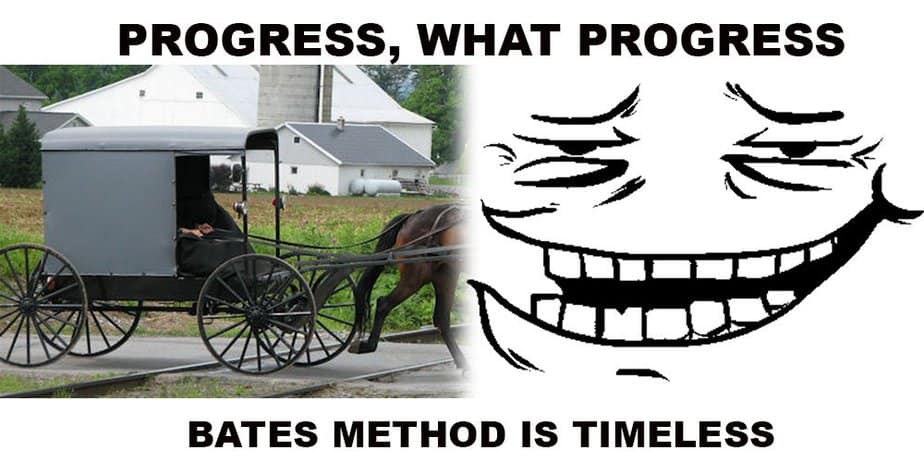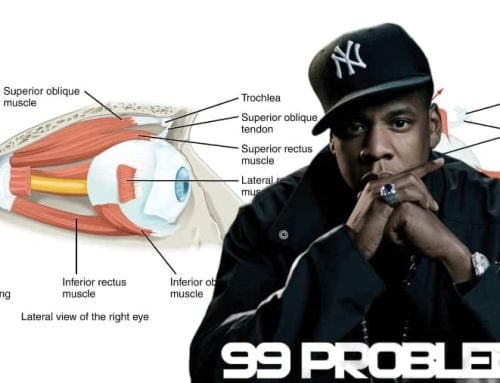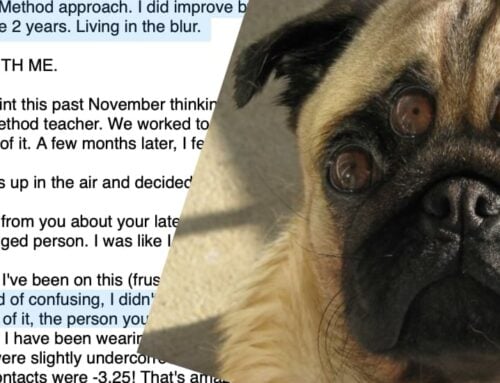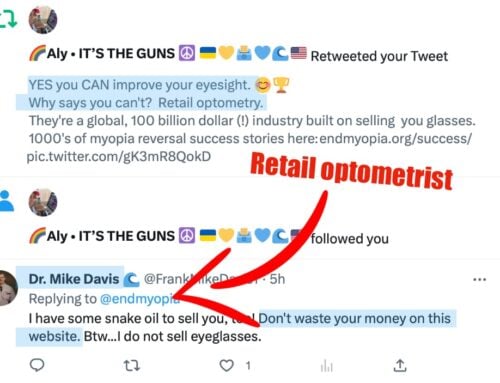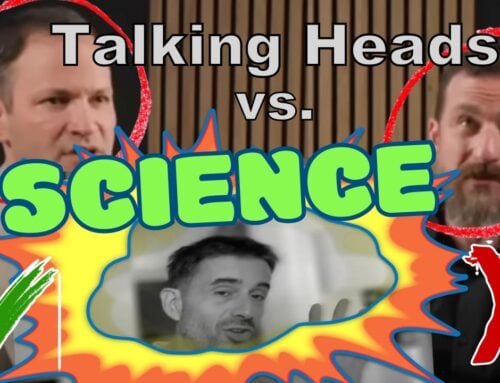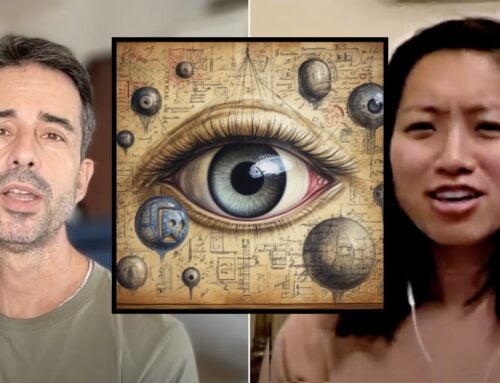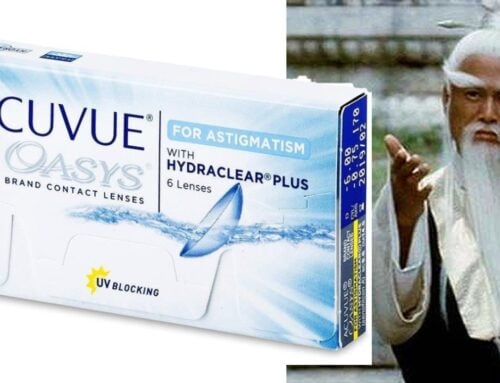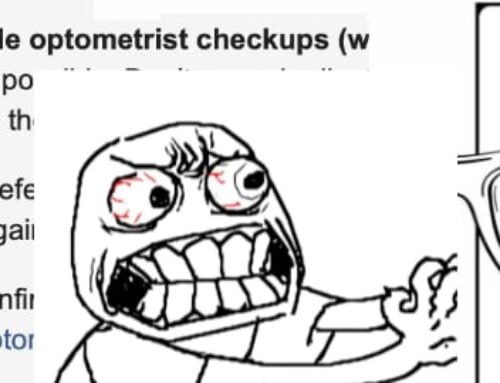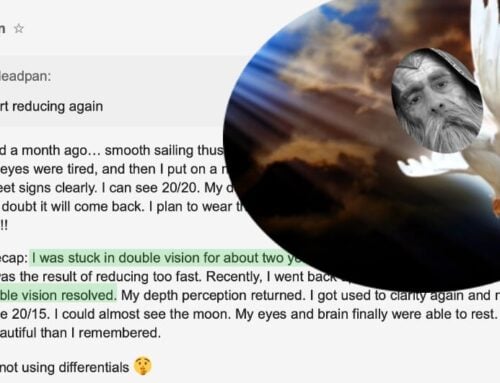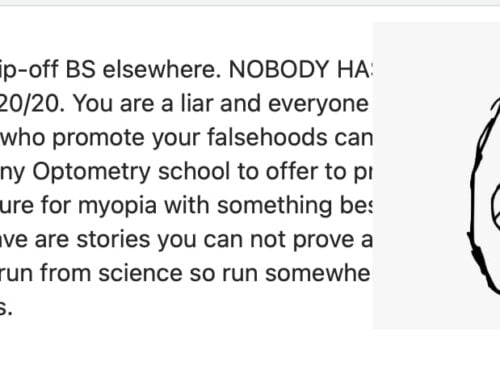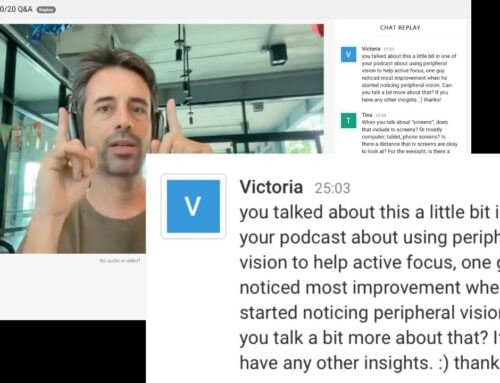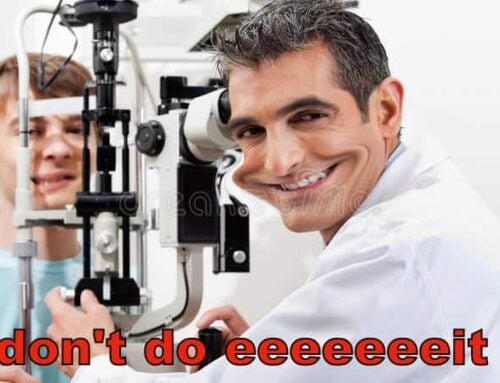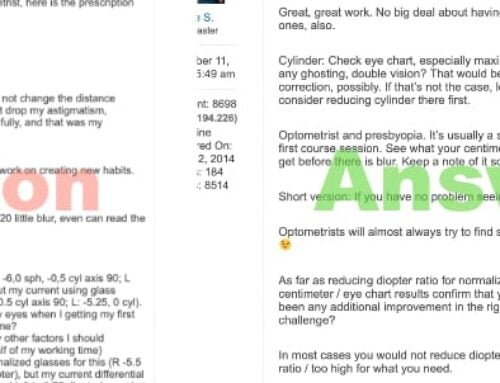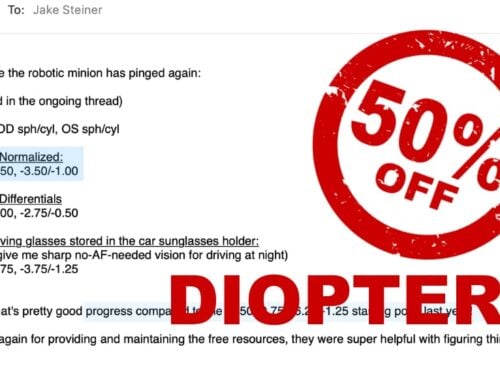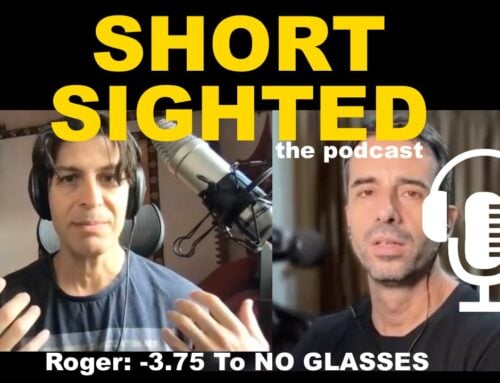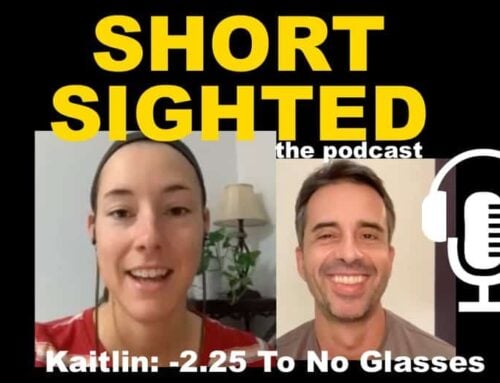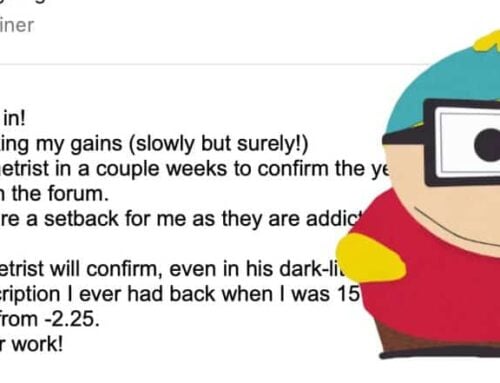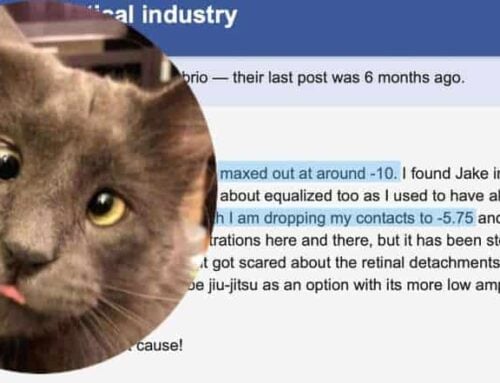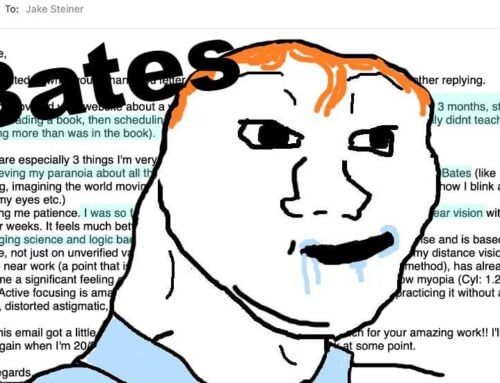There’s been a huge pile of drama in the rapidly growing (about to hit a thousand members in just a few weeks!) @endmyopia Facebook group.
Subject of all the drama? Bates. It all started with Cliff innocently enough posting about being contacted by an optometrist who saw his YouTube video about his improving eyesight. That, a great story, great (and rare) initiative, really the sort of thing we need more of. Unbiased perspective, first hand experience, level headed perspective, sharing experiences, and following up with intrigued professionals.
That’s rare. And important.
Then the thread quickly devolves into a Bates argument. You know I’m no Bates fan and unfortunately the person who started all the disagreement is an otherwise valued contributor to the group.
What’s a Jake to do.
Well, this, finally. I don’t want to censor to the point that we loose diversity of opinions and ideas, and yet we don’t want to alienate anyone who is actually creating value. Guys like Cliff won’t share if they’re going to have to sift through arguments that are specifically not part of the @endmyopia method. I have to draw the line somewhere.
And it’s not just Bates.
I get optometrists, even open minded behavioral ones, irritated and disagreeing at various points of our method. It’s such a tiny, tiny arena, those even curious about natural myopia control, that it makes me unhappy to see arguing and disagreement. It’s a huge disservice to those who are looking for answers. You don’t want people to come around natural myopia control and immediately be surrounded by arguments. Not confidence inspiring.
So then there’s me, being disagreeable (working on it), a lot of the time. Why?
If you look at things rationally, I’m the guy who came into all this with minimal bias. I don’t give a sh*t about fame or money or being the guy people listen to. I just wanted to get my eyes back, over a decade ago, and I did not look to reinvent the wheel.
I started with all the available solutions. I read all the books, I traveled to dozens of countries, I interviewed specialists ranging from homeopathy, accupuncture, Chinese medicine, to traditional Western ophthalmologists. I did this in a wider range of locales and circumstances than possibly anyone before.
I was bored and I get obsessed. What can I say.
There wasn’t a solution I found, though I looked more than anybody would reasonably think necessary. Then I started coming around to a vague starting point of a solution of my own, that decade ago, and really getting into vision biology. Friends started getting involved. Then strangers. Then we started calling them students, we found some sympathetic and similarly minded practitioners, we expanded the range of experiences.
So first there’s me, talking to a lot of people, looking for answers. Not finding a ready made solution that I, single one person, found to be satisfactory.
Then developing a solution starting from zero, and beginning to tweak the approach with other participants. Fast forward to today, well over a decade has passed, I’m at 20/20 instead of -5 diopters, and I’ve watched literally thousands of students be part of the process and consistently get expected results. They’ve tested approaches, ideas, theories, they’re so much like a river grinding down the rough edges of the pebbles in the river bed. There was no @endmyopia method until a whole lot of people together defined it, using combined experience. We found some really close, similar solutions along the way, and we worked together with professionals to combine what we learned. Long road to today.
Why this long history lesson throwback?
Perspective. I’d have done Bates, or behavioral optometrists, or whatever, if it had worked for me. And when I started getting others involved, another method would have taken over, if it had been more effective. You don’t do a thing with a thousand people, from all over the world, all walks of life, without eventually arriving at a most efficient path to a common goal.
So when somebody says to me, hey, eye yoga. I cringe, because I’ve been through all that. It was a time suck, it wasn’t the most efficient path. It’s an outlier, somebody is attached to the idea, but when you put a thousand people through it and a dozen other options, the answer just simply isn’t success via eye yoga. Not personal bias but the combined experience of a lot of people trying it out and discarding it.
Same for eye vitamins. Same for various behavioral optometrist approaches. Same for, yes, Bates.
Sure it works for some. I’m not saying it’s all horrible, all the time. We talk about it elsewhere here on the site. What I am saying is that when you take a step back, you remove yourself from a set bias, from subscribing to some particular belief, you are simply looking for the straightest path from A to B, from myopia to not myopia, then it’s not anything other than what the rounded pebbles of the endmyopia river bed are today.
I’m an a**hole about other methods on occasion, because I don’t want you to waste your time on some ideology that somebody will push on you, because it worked for *them*. That’s anecdotal. Because somebody got healthy from eating carrots doesn’t mean you will too.
What I want you to do is what I’ve seen work for a thousand people. If you’re coming to me, I want you to get a result that makes you say, yes, this Jake guy, didn’t waste my time.
So when I seem harsh or pushing back, it’s not because I’m defending an ideology. It’s not because a thing worked for me and I want everybody to share my personal experience and validate my beliefs. Rather, it’s because it’s what I’d want to find if I was looking for a myopia solution. Straight A to B. No unscientific stuff from a century ago, no hours and hours doing some exercise, no buying pills, no having to suspend disbelief and taking detours onto some unicorn farm of deep breathing and heart chakras or blue light in your cells or the monster-under-the-bed dangers of modern life.
Take away?
Try other stuff. Don’t take my word for it. And tell me if something else worked for you, and why. The river hasn’t stopped flowing. Think about your motives first, whether you feel like experimenting, whether any particular explanation speaks to you most, how you generally like to approach projects or problem solving.
But also … if you come to me preaching Bates, I can’t promise an agreeable dialog. ;)
Cheers,
-Jake

